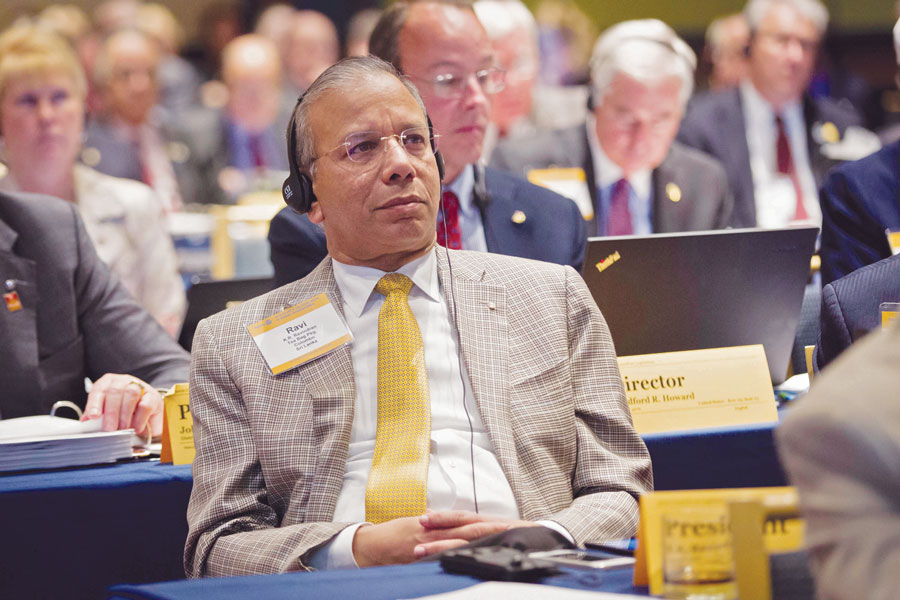
A couple of months ago, the Chief Justice of the US Supreme Court Justice Antonin Scalia passed away. An article in the New York Times fascinated me … his unlikely personal friendship with his fellow justice Ruth Bader Ginsburg. He was on the right, she is on the left.”
With these words RI President K R Ravindran welcomed the delegates at Rotary’s Council on Legislation at the RI headquarters in Evanston.
The CJ had disagreed with all her views, be it equal pay for women, same-sex marriage, voting rights or abortion. “They disagreed on every one of the most divisive issues in modern American politics. And yet their families vacationed and celebrated the New Year together every year, and Scalia once said about his great legal adversary, ‘My best buddy on the Court is Ginsburg.’ ”
This public friendship made a significant statement about the US Supreme Court — that it was strengthened by respectful debate. “The idea that you can argue, disagree passionately but never let it touch your friendship,” is rarely seen today. Except in Rotary; on the RI Board and every three years during the COL “where we can argue, debate, put the democratic process to work, and still go out in the evening together.”
Sometimes he felt Rotary should invite Parliamentarians around the world so they could learn “how real democracies should work. It would be a good community service project!”
Ravindran said he often thought Rotary was a microcosm of the world — “not a perfect world — but a better world. A world where we try our best, consciously, at every moment, to allow our better selves, cooler heads and warmer hearts to prevail; to actively choose, at every moment, to put Service above Self.” The COL gave Rotarians the opportunity to live the ideals of Rotary.
It is impossible not to wonder how much good Rotary might have done, but never did, because we voted to shut-out women in 1964, again in 1972, and yet again in 1977.
The President then related the story about how a German PDG, Kerstin Jeska Thorwart, was the driving force behind the rebuilding of a maternity hospital destroyed by the tsunami in Sri Lanka in 2004. Since then it had treated over 2.5 million women; “in 2014, 12,000 babies were born there, and not one mother died — a statistic many western hospitals would covet. This is one of the great success stories of Rotary. But none of it would have happened without the one female Rotarian who said I want to help — and had the skill, talent and determination to move every mountain that stood in her way.”
Looking at this achievement of one woman Rotarian, “it is impossible not to wonder how much good Rotary might have done, but never did, because we voted to shut-out women in 1964, again in 1972, and yet again in 1977.”
If the earlier Councils, instead of saying, “that is not what we do in Rotary,” had voted for women’s entry much earlier, Rotary could have served the world even more. He urged the delegates to remember all the time, as they discussed and debated issues, that the one tradition or philosophy that mattered was ‘Service above Self’ “and that is the only tradition we need to preserve at all times. That sentiment is what should guide you, in every question, and every vote. We must place the health of our organisation above the habits of our clubs, the work of tomorrow above the familiarity of today, and the needs of others, above our own desires.”
Ravindran reminded them that the “decisions you make here will not end here. Their effects will ripple out to every corner of the world for years, decades, even generations to come. They could take us forward to a new era of service, or set us back on a course to regret forever.”





